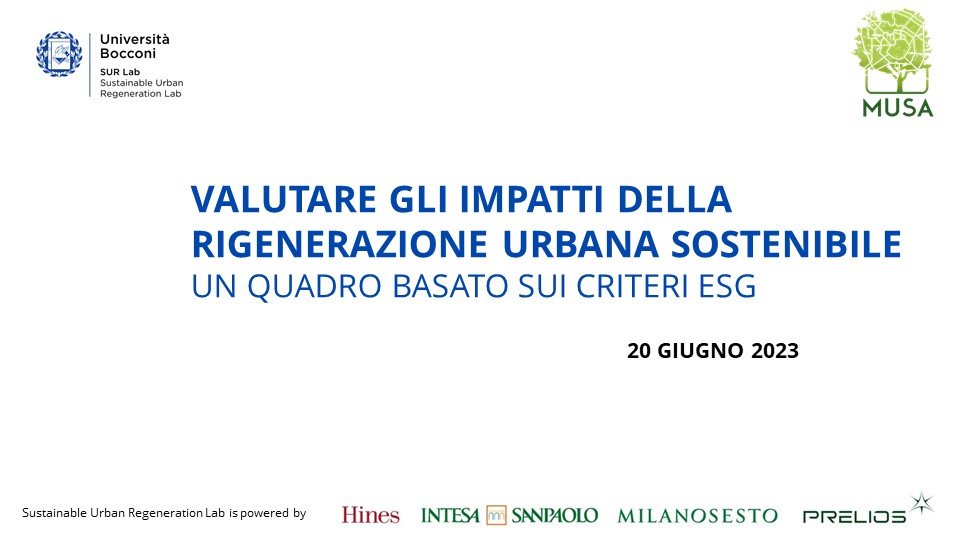Unlocking urban regeneration potential through the ESG approach

The ESG (Environmental, Social and Governance) approach is catalyzing the attention of both private and public actors in order to drive sustainable investments. Urban regeneration projects represent a new key focus for applying the ESG approach, considering its multidimensional characteristics that entail social, economic, physical and environmental dimensions, as well as governance and coordination between actors involved.
On June 20th, during the workshop “Assessing the impacts of sustainable urban regeneration based on the ESG approach”, the SUR Lab team presented the results of its annual research focused on defining an innovative ESG framework to assess urban regeneration projects. The ESG framework, under implementation, will become a unique practical guide for everyone involved in the urban regeneration industry, including developers, local institutions, stakeholders, financial actors and financial institutions. The research paper is available on this LINK.
The workshop has been introduced by Andrea Fosfuri, Dean of the PhD School and Innovation at Bocconi University, Edoardo Croci, SUR Lab Director, and Mario Abbadessa, Senior Managing Director and Country Head at Hines Italy.
SUR Lab partners (Hines, Intesa Sanpaolo, Milanosesto, and Prelios), experts, academics and the Town Councillors of Turin, Genoa and Milan discussed how to boost sustainable urban regeneration and enhance the attractivity, beauty and quality of life in our cities.
Key messages emerging from the debate refer to the need to overcome the sole environmental considerations, the core of existing standards and assessing protocols, to embrace the complexity of impacts generated by urban regeneration processes. Social sustainability and the governance of those processes are crucial to delivering long-term value to all actors involved. Furthermore, applying the ESG approach to assess investments in urban regeneration projects is necessary for financial institutions and asset managers to comply with the EU requirements and reduce their risks.
The workshop is held in collaboration with MUSA project – Spoke 1, funded through the Italian Recovery and Resilience Plan, which aims to develop and test innovative and integrated solutions for urban regeneration. Marina Brambilla, Dean of Education and Student Services at University of Milan, Massimo Labra, Full professor at Bicocca University, and Riccardo Taranto, Managing Director at Bocconi University, attended the workshop displayed the key role of urban campuses in driving sustainable urban regeneration.
To know more about keynote speakers and the workshop you can download the agenda HERE.
